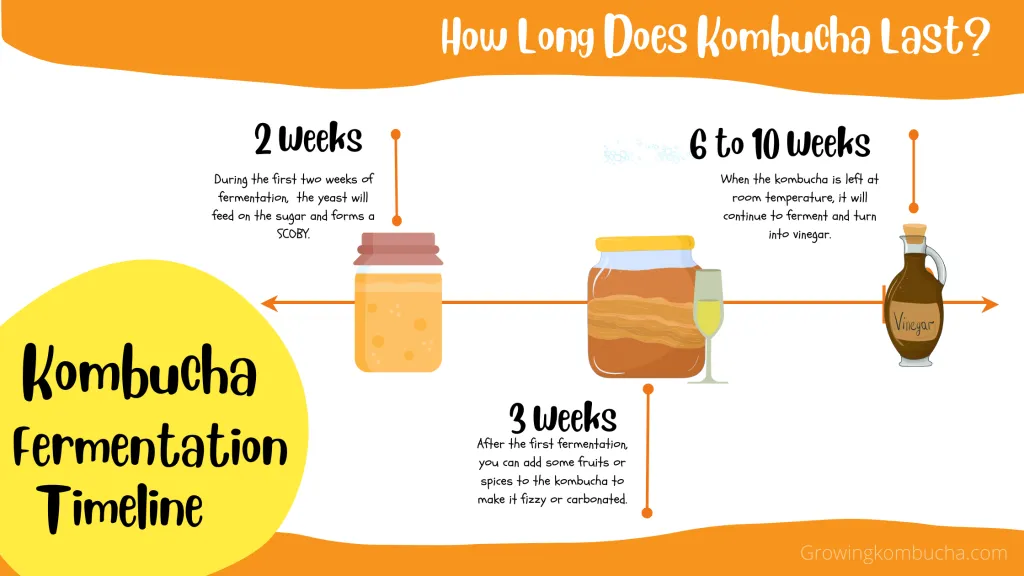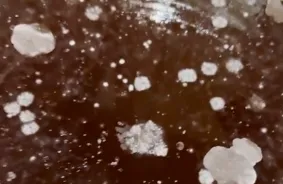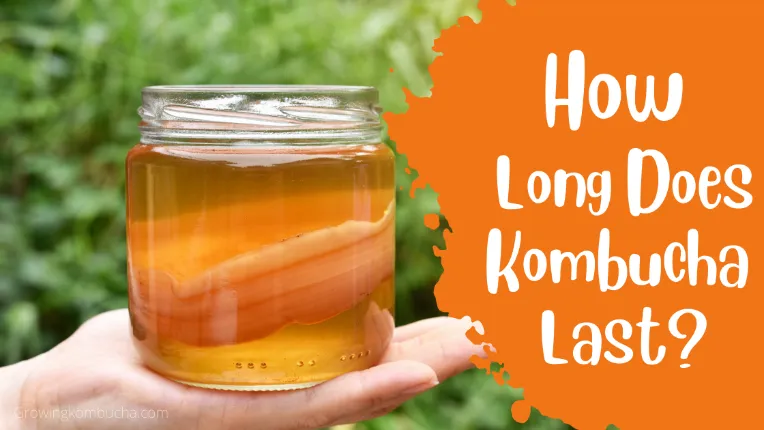Kombucha, along with wine and yogurt, is a product of fermentation. New kombucha lovers are wondering how long does kombucha last and does it age like fine wine. Discover the shelf-life of your fizzy sweet and sour drink in this post so you can avoid bad kombucha side effects.
When we hear about fermented food, some often think that the longer it ferments, the better its = quality. Fermentation is the brainchild behind the ingredients we use today, like apple cider vinegar, yogurt, soy sauce, and many more.
If kombucha is fermented, does that mean it can also last like other fermented foods? The answer is yes and no. Let us explain.

Q: How long does Kombucha last?
A: Technically, uncontaminated kombucha doesn’t expire or go bad. Over time, it turns into vinegar rather than the sweet and sour carbonated drink that you enjoy drinking. Its ‘kombucha’ quality degrades at room temperature, and as soon as there’s too much acid due to prolonged fermentation, it becomes too acidic to enjoy drinking.
Kombucha is also fermented, but it is created in the mid-fermentation process and not the end product. Temperature triggers the fermentation process, and when kombucha is at room temperature for a long time, it will turn into vinegar.
Does kombucha need to be refrigerated?
The carbonation in unrefrigerated kombucha will increase, making glass bottles explode. However, when you put kombucha in the fridge, the temperature will pause the fermentation and maintain its usual sweet and tart taste.
Leaving kombucha in the fridge for several months can make them lose their carbonation. To bring back its fizz or carbonation, remove it from the fridge for two to three days. Then, chill it again to enjoy your iced fizzy kombucha.
While kombucha does not go bad, some people may feel conflicted about the expiry date they find in most store-bought kombucha brands.
Why do store-bought kombucha bottles have an expiry date?
The expiry date on store-bought kombucha is due to a legal obligation as manufacturers, and an estimated timeline before the quality might change. The duration of the expiration date differs between brands and the flavor of their kombucha.
We gathered some of the popular kombucha brands in the market to know which are more shelf-stable. The majority of the brands encourage consumers to consume their booch before the expiry date to achieve its optimal taste.
Most of the brands also indicate that their kombucha is still safe to drink beyond the expiry date but do not recommend consumption due to the possible change in taste.
Among the ten brands we chose, Rise Kombucha is the most shelf-stable with 8 to 12 months expiry duration, while Health-Ade has the least shelf-life. The average shelf-life store-bought of the ten kombucha brands is around 4 to 8 months, in general.
How long does kombucha last after opening?
It is best to consume kombucha within three days after opening. Kombucha contains billions of good bacteria. Once it is exposed to unfiltered air, microscopic fungus spores, molds, and bad bacteria might contaminate it, not to mention the contamination from your saliva.
How to know if kombucha is bad or contaminated
The common problem of most homebrewers of kombucha is contamination. You will know that something is off on your booch when:

Molds: There are green or white furry formations at the top of the kombucha. These are molds, and sadly, some spores of mold made their way in your container or any unsanitized tools used.
Contaminated kombucha is no longer safe to drink and can lead to gastrointestinal distress and other illnesses. Throw away the bad batch of booch, and make sure to sterilize your tools with boiling water, vinegar, or alcohol.

Kombucha vinegar: When the taste becomes too sour, your kombucha is now vinegar. It happens due to the over-fermentation of kombucha, and it has been left at room temperature for too long. The good thing is, you can still use the kombucha vinegar as a salad dressing or in creating a new batch of kombucha.
A few misconceptions about the safety of kombucha are the floaters and sediments at the bottom of the bottle. The floaters and sediments are usually yeast or SCOBY, a by-product of fermentation. They are safe to consume, but you may filter them out if it’s not your cup of tea.
To know if kombucha has gone bad, use your best judgment in checking its appearance and taste. If you’ve been drinking kombucha for a while, you’ll know when something is off.
Frequently Asked Question (FAQs)
Can kombucha go bad in the fridge?
No. The fermentation of kombucha stops and its flavor remains tart and sweet when it is stored in the fridge. However, it may lose its fizz or carbonation when it is exposed to the cold for too long. To bring back the carbonation, remove it from the fridge for two days.
Does kombucha actually expire?
Technically no, it will only turn into vinegar when overly fermented. Yes, it expires when its kombucha taste is altered due to overfermentation. Kombucha is a product of the mid-fermentation process, which ends as vinegar. Storing it for a long time at room temperature will continue the fermentation and make it more acidic, but when chilled in the fridge it can retain its ‘kombucha state’.
Can you drink kombucha after 5 days?
It depends. An unopened kombucha is safe to drink when chilled for five days. If you already opened the bottle, there’s a chance that it’s already contaminated through microscopic contaminants in the air and your saliva. It’s best to consume kombucha within three days after opening.
If you left your kombucha at room temperature, the fermentation has already continued which may affect the taste – making it more sour or acidic.
Can old kombucha make you sick?
No. Old kombucha is still safe to drink but will taste sour because it turns into vinegar. Unlike wine, when the yeast has consumed all the sugars in kombucha due to overfermentation, it turns the booch into vinegar. Also, check for molds because over fermented kombucha are prone to mold contamination.
